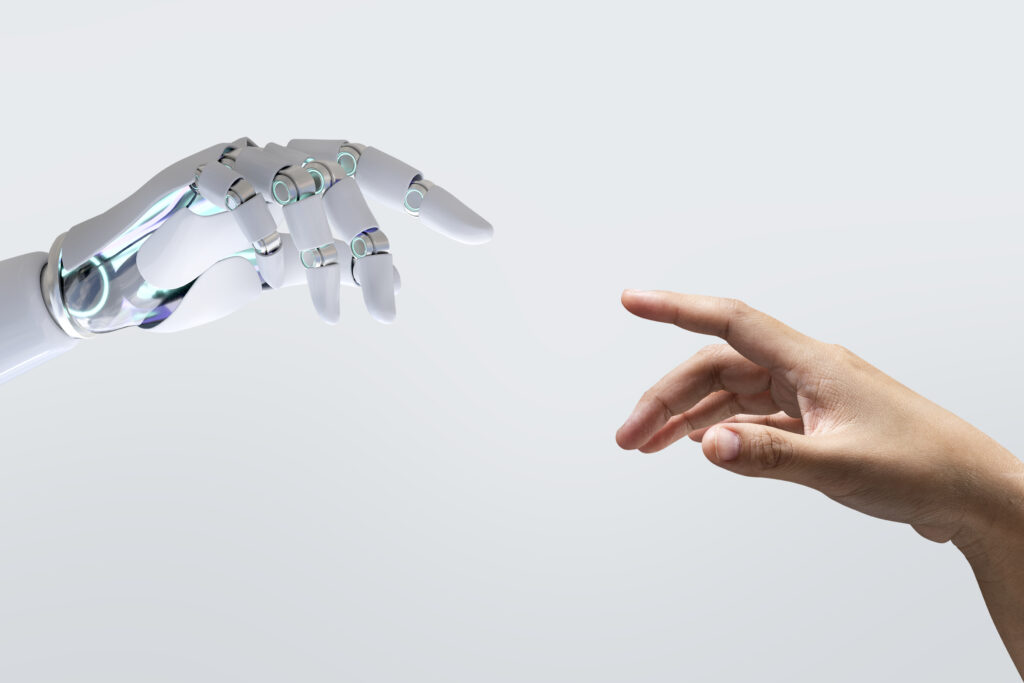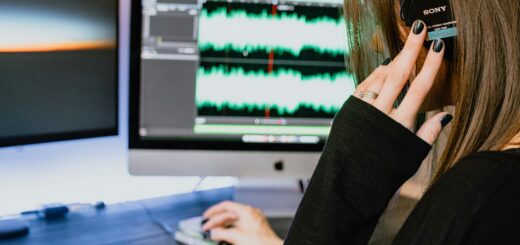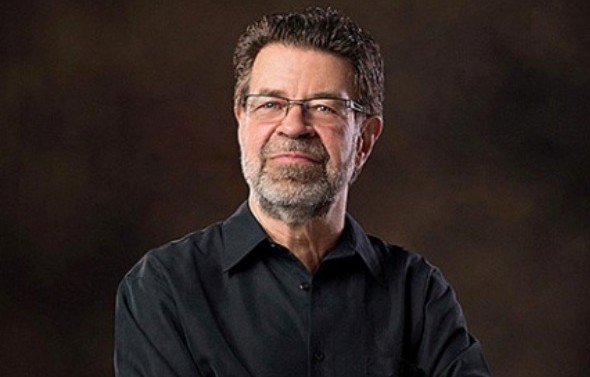Why a Professional Voice Actor Will Always Be Better Than AI Voice Recordings
Have you ever listened to a robot trying to tell a joke? It’s about as funny as a wet sock. That’s kind of what it’s like when AI tries to replace human voice actors. Sure, artificial intelligence is getting smarter by the day, but today’s computer-generated voices sound less like your grandma’s ancient GPS. Let’s face it, though—there’s something special about the human touch that even the cleverest algorithm can’t quite capture.
One might feel, well, that AI could be shortly stealing the scene from the pros in this age of tech wizardry. But it is much more complicated than just doing a few voice-overs. It is an art, a finely crafted skill developed over the years through apprenticeship and raw human emotional fuel. Let’s see exactly why flesh-and-blood voice actors will forever have the upper hand over their clone-like digital replacements.
The Human Touch
Let’s say you’re listening to an audiobook of your favorite mystery novel. The detective is getting closer to the murderer. The tension builds…but then, the narrator’s voice is as flat as a pancake. That, for sure is a mood killer! It is a great example of how human voice actors shine brighter than a disco ball at a rave. What is special about professional voice actors is the supernatural ability to make words dance. They whisper, they shout, they giggle, or growl. They’ll make you feel like you’re standing right beside them in that story or like the guy at the other end of a phone call is your best friend. How do they do it? That’s all in the niceties of nuance and inflection.
But that’s not all. An independent voice actor doesn’t just read through a house full of prewritten texts; he brings them to life. They may be directed to make immediate changes. If the director says, “More excitement!” or “Tone it down a notch,” a human character actor can do so on a dime. An AI? Well, you’d have to return to the drawing board, fiddle with settings, and hope for the best.
Now, this is where things get juicy: emotional scenes. Imagine some sad movie moment. An AI voice can maybe say something like, “I’m sorry, I just can’t do this anymore,” with all the feeling of a soda machine. A human actor can, however, make those words ooze with sadness, choke them out between sobs, or talk in a whisper-laced mixture of regret and determination. That is the acting that gets your skin tingling with goosebumps.

And there’s comedy, too. As you probably know, Timing is everything with humor, and AI has all the comic timing of a broken clock. A professional voice actor will know precisely how long to pause before delivering the punch line, how to emphasize certain words for the most laughs, and how to adjust delivery on the fly based on the audience. An AI telling a joke is like a cat trying to bark – it just doesn’t work.
Time and Effort: Where AI Falls Short
Now, at this point, you are asking yourself, “But can’t we just tune the AI until it sounds right?” Yeah, you could. You could also try teaching a fish to climb a tree, but that really doesn’t mean it is a good use of your time.
Thus, to voice AI recordings with the right nuances and inflections is practically comparable to solving a Rubik’s cube blindfolded; it requires a lot of time and effort—sometimes more than what it would take with a human actor.
Let’s put some numbers to it: 85% of audio engineers, in a study, said that tweaking AI recordings for the proper emotional tone took 50% longer than with human actors. That is hours upon hours of additional hours fiddling with dials and sliders!
Getting the right AI voice really is trial and error: You can adjust one of those settings, and then you can listen to the end result. Of course, often, that is not what it is, so then you need to go back and do it all over again. That would be similar in paradigm to playing a really frustrating game of “Guess What I’m Thinking” with a computer.
In contrast, professional voice actors are more Formula 1 in an audio world—quick, efficient, skimming past even the most tricky turns with just a flick. Want a line delivered with a hint of sarcasm but a dash of enthusiasm? A good voice actor—bingo—will get it within one or two takes. An AI might take 50 and still have it come off as reading assembly instructions for a bookshelf.
Audience Perception and Engagement
Now, this is where it gets interesting. Did you know that a whopping 92% of listeners can tell when it’s AI-generated, and 75% find it distracting?
Why is that important? If people are being distracted by a weird-sounding voice, they aren’t paying attention to your message. It’s an awful lot like trying to have a serious discussion when a clown is juggling flaming bowling pins in the background. Sure, the words are being said, but nobody’s really usually listening.
Human voices Evoke a closer bond with the audience; they engage and nationalize people. It’s what makes one feel he or she is being told a story by a friend as opposed to eavesdropping on two robots discussing the weather.
Let’s look at some real-world (okay, hypothetical) examples:
1. Advertisements: Company A uses an AI voice for their new car ad. Adjectives people use to describe it include “creepy” and “off-putting.” Company B uses a professional voice actor. Their ad sounds “exciting” and “makes me want to test drive that car!”
2. Audiobooks: An AI narrates a bestselling romance novel. The listeners complain that it speeds up their pulse as much as someone reading a shopping list. Exactly the same book, narrated by a really good voice actor, becomes a bestseller with listeners raving about the emotional depth and voices brought into play.
3. Customer Service: A company does something quite logical and converts its phone system to AI-generated voices. The customers show frustration and a sense of disconnection. Reverting to human recordings resulted in skyrocketing customer satisfaction scores.
What’s the lesson? Perhaps human voices connect better. It feels heard, understood, and valued. An AI voice? That is as warm and fuzzy as a cactus in the middle of a snowstorm.
The Future of Voice Acting and AI
Now, let’s gaze into our crystal ball to see what the future holds. Someday will AI voices become virtually indistinguishable from a human voice? Maybe. Will they replace professional voice actors? Not a chance.
Now, here is the thing: as AI improves, there are a few intrinsically human elements that cannot be emulated by machines. Creativity, empathy, and real-time adaptability are what set apart top-notch live voice acting.
Moreover, much as AI can parrot what humans say, it doesn’t understand it. There’s no way a machine will ever feel something from personal experience to bring emotion into the performance. It can’t read a room and adjust delivery on the fly.
This doesn’t mean AI doesn’t have a place in the voice-acting world; actually, it might be quite useful for human actors. Just imagine an AI that could quickly generate different accents or voice types given to an actor to study and replicate or to help with pronunciation in tricky words in foreign languages—now those are possibilities!
But, in the final analysis, professional voice talent really retains the edge. They can bring into the work an absolutely singular brew of artistry, experience, and humanity that no amount of coding can ever rival. Truly, they embed life into words—to create characters who, given their seeming realness, form these very connections or relationships with listeners in ways that AI simply cannot.
Conclusion
Yes, working with AI may seem easier or cheaper in the short run. But start adding up the time spent tweaking and adjusting—that is, leaving apart facing the audience—and that certainly isn’t the case. Professional voice actors really are worth their weight in gold-plated microphones.
So, the next time you give in to the pressure of letting a robot do the talking, remember, nothing is as great as the real thing. Professional voice actors read not words but create experiences, pull at your emotions, and connect the dots. That human touch has never been more valuable in a world that’s progressively going digital.
Unsung heroes of our audio world, professional voice actors turn on our favorite characters and make audiobooks a personalized adventure. They make those annoying commercials actually worth listening to. They prove that in the battle of Man vs. Machine, sometimes Old School does rule.















